Birds and white pine weevil causing damage to leaders of conifers
Damage from birds and white pine weevil to the leaders of conifers in Christmas tree fields and landscapes is beginning to show up.
Bird damage
Each year we find new growth on terminal shoots dead and hanging on the leader. At first glance, it looks like some insects may have girdled the shoot. However, these broken treetops are caused by birds perching on newly developed shoots (Photo 1). Breakage typically occurs this time of the year when the new tops are elongating, before they are stiff enough to support a bird perching. Taller trees seem to be more affected as the birds look for higher vantage points.
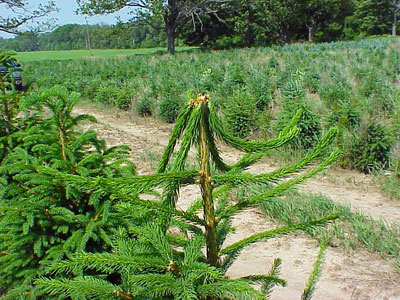
Photo 1. Bird damage to the leader
of Norway spruce.
To help minimize damage, growers have used scare-eye balloons to deter birds with some success (Photo 2). In Europe, where the perfect leader is important for tree quality and their market, they have developed perches that are placed on the tree top (Photo 3). Also, growers will place the skeleton of larger trees or deciduous trees from their woodlots to provide perching areas in the plantation (Photo 4).
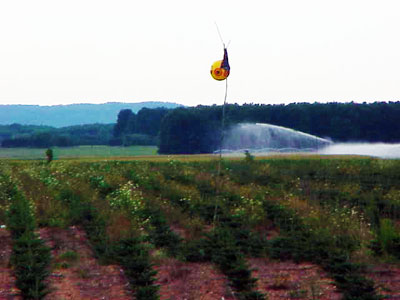
Photo 2. Eye balloon on Christmas tree.
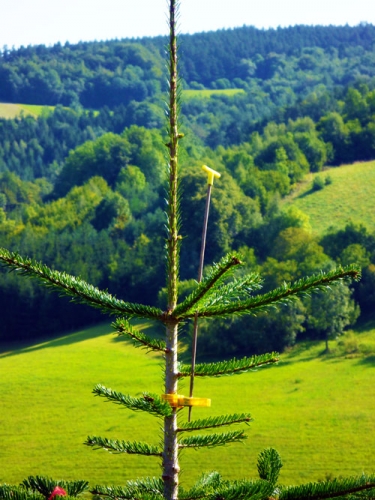
Photo 3. Perches placed on tree tops.
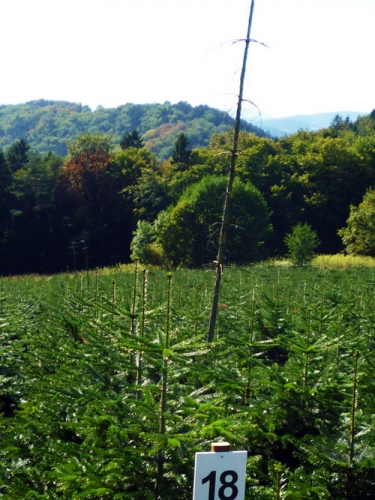
Photo 4. Skeleton of a larger tree provides
perching
areas for birds.
White pine weevil damage
Growers may find they have more damage from white pine weevils this year than in the past. The warm temperatures in March made it difficult to time insecticide application this spring. Growers have begun to find the characteristic wilted, droopy and curled leaders of many conifers that have been attacked by white pine weevil (Photo 5).
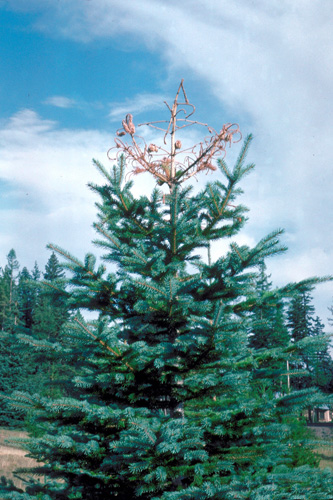
Photo 5. Typical damage to spruce leader from
white pine weevil. Photo credit: Dave Powell, USDA Forest Serv., Bugwood.org
Larvae of the white pine weevil kill the terminal leader and the top two to four years of growth on many varieties of spruce, as well as white and Scotch pine trees. Normally, we begin to see the first symptoms the end of June to the first part of July.
To confirm white pine weevil injury, use your fingernail and pull the bark away from the leader. If it’s weevil damage, you will see the frass and the small, white, legless larvae, and maybe some chip cocoons just below the bark (Photo 6). These leaders should be pruned out when the first symptoms appear.
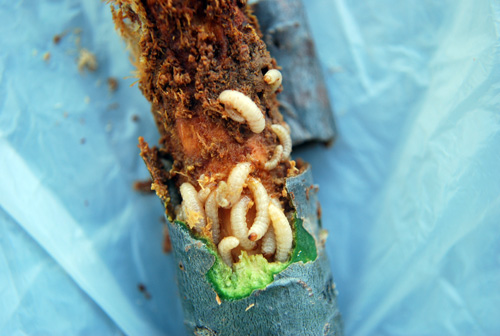
Photo 6. White pine weevil larvae.
Cut the terminal leader off an inch or two below the area damaged by the weevils. When you prune out the infested leader, make sure not to leave the cut terminals lying in the field because the larvae will continue to develop. After the dead leader is removed, select a healthy lateral shoot on the uppermost whorl to become the new leader. Trim the rest of the shoots back to one-half of their original length. This will enable the tree to recover its apical dominance and good form faster.
Damage from white pine weevil can be prevented by spraying the upper terminals of spruce and pine next year in early in the spring.



 Print
Print Email
Email


